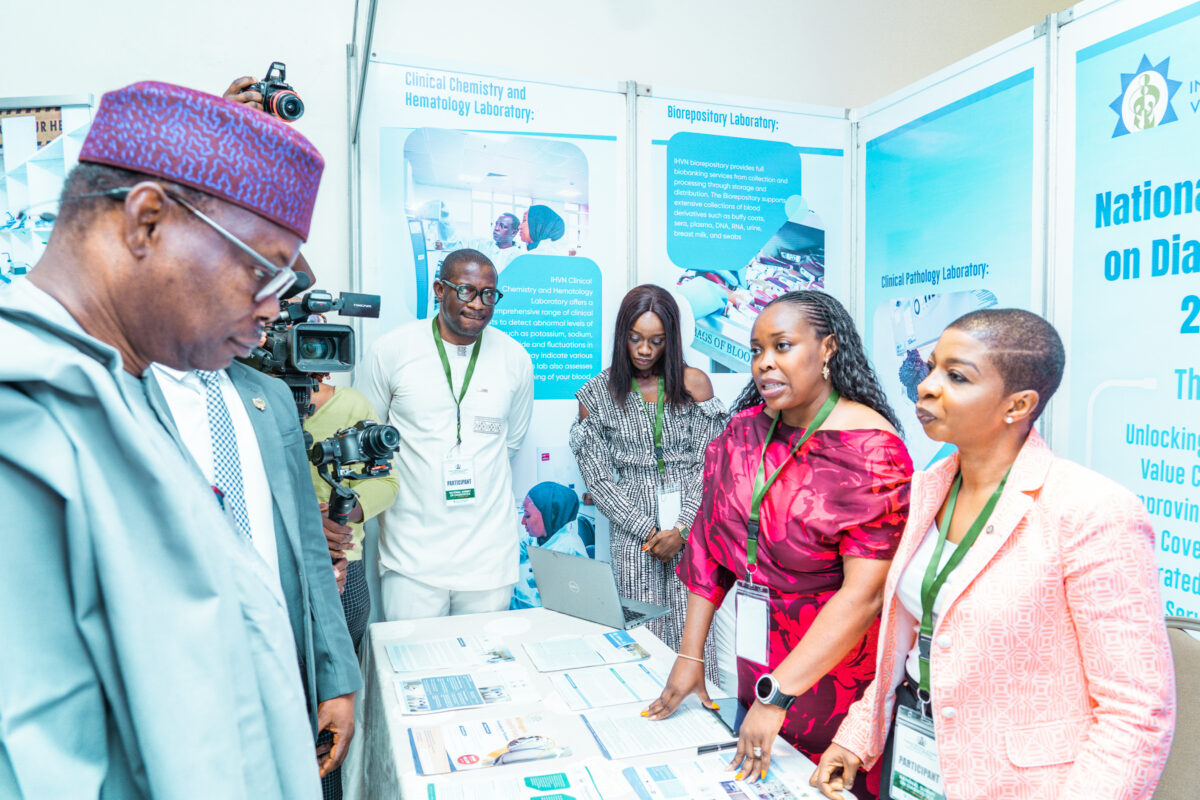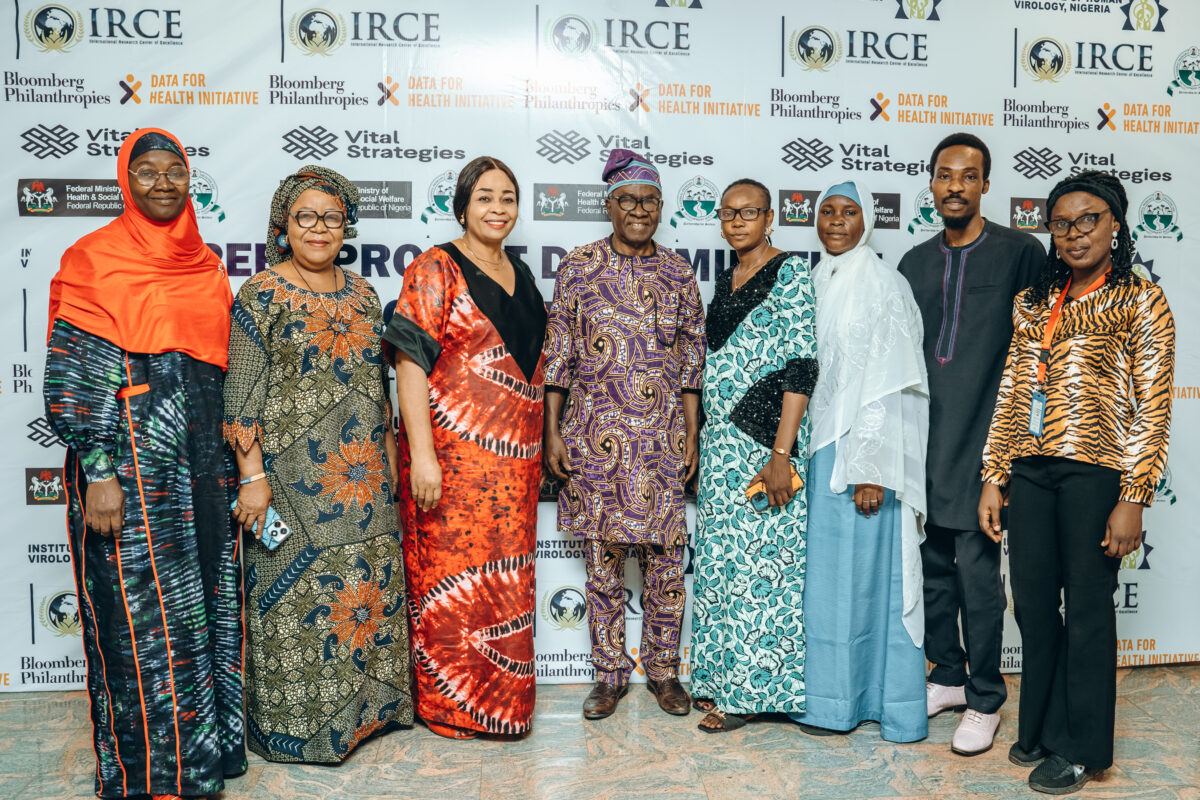| The Institute of Human Virology, Nigeria is seeking bidders to bid for the Supply of Laboratory Items under ASPIRE grant | |
| Opening Date/ Time: | 8th May 2025 |
| Closing Date/ Time: | 28th May 2025 @10:00am |
| For more on this bid, kindly download the complete bid document, | Click here to download the bidding document |
IHVN Participates in Maiden National Summit on Diagnostics
The Institute of Human Virology Nigeria (IHVN) has joined stakeholders across Nigeria to deliberate on “Unlocking Healthcare Value Chains and Improving Universal Health Coverage through Integrated Diagnostic Services” at the country’s first National Summit on Diagnostics held in Abuja.
At the summit, IHVN International Research Center of Excellence (IRCE) Executive Director, Prof. Alash’le Abimiku made a presentation on “Diagnostics for All: Strengthening the Healthcare System through Partnerships, Collaboration and Research.”
She said that, “For a country like Nigeria, this conference is significant because one of the things we haven’t done well is integrate all the disciplines of health services when dealing with diseases, diagnostics, and public health challenges. This platform brings diagnostics to the fore as a key partner in delivering quality healthcare.”
According to Prof. Alash’le, reliable diagnostic services are foundational to effective healthcare, enabling accurate disease detection and management and strengthening surveillance systems for both communicable and non-communicable diseases.
“Quality laboratory service is the entrance to better healthcare. You can’t talk about good public health services without paying attention to high-quality diagnostic services. They help people be certain of the care they receive and are crucial in tackling everything from infectious diseases to diabetes and general wellness,” she added.
The conference was marked by high-level participation, including the Minister of State for Health, Dr. Iziaq Adekunle Salako and the Director-General of the National Agency for the Control of AIDS (NACA), Dr. Temitope Ilori. A highlight of the opening ceremony was the keynote address by Professor Tomori, a globally respected virologist.
Prof. Alash’le expressed deep pride in IHVN’s involvement in organizing the event, noting the institute’s role as a leading player in strengthening diagnostic infrastructure and expertise in Nigeria.
“It’s been a fantastic success. The presence of such dignitaries and the quality of dialogue, particularly with private and industrial stakeholders, has been outstanding. IHVN’s representation has been awesome, and we were especially proud to honor the legacy of our late colleague, Thomas Panwal, who contributed so much to this effort.”
Our mandate at IHVN is not just local. We aim to be the leading institute on the continent in quality health services, capacity building, and research. This conference is a key part of that vision,” Prof. Alash’le noted.
IHVN Business Development Unit Lead, Mrs. Abisola Adekanye, who participated in the summit remarked that IHVN is a scientific leader with the potential to position itself as a commercial force in diagnostics.
“IHVN has what it takes—state-of-the-art equipment, highly skilled and professional staff, a controlled and standardized environment, and properly calibrated machines that ensure accurate, reliable results. We’re looking at strategic collaborations—equipment manufacturers, reagent suppliers, universities, government bodies, researchers—anyone and everyone who can help us build a sustainable, innovative ecosystem that strengthens diagnostics in Nigeria and across Africa,” she said.
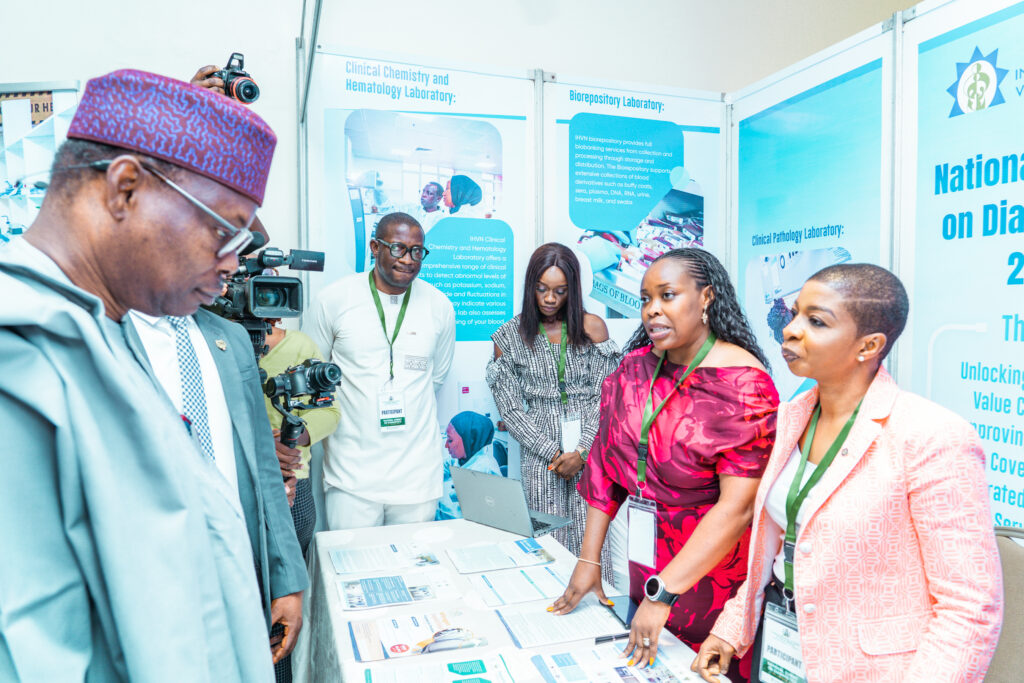
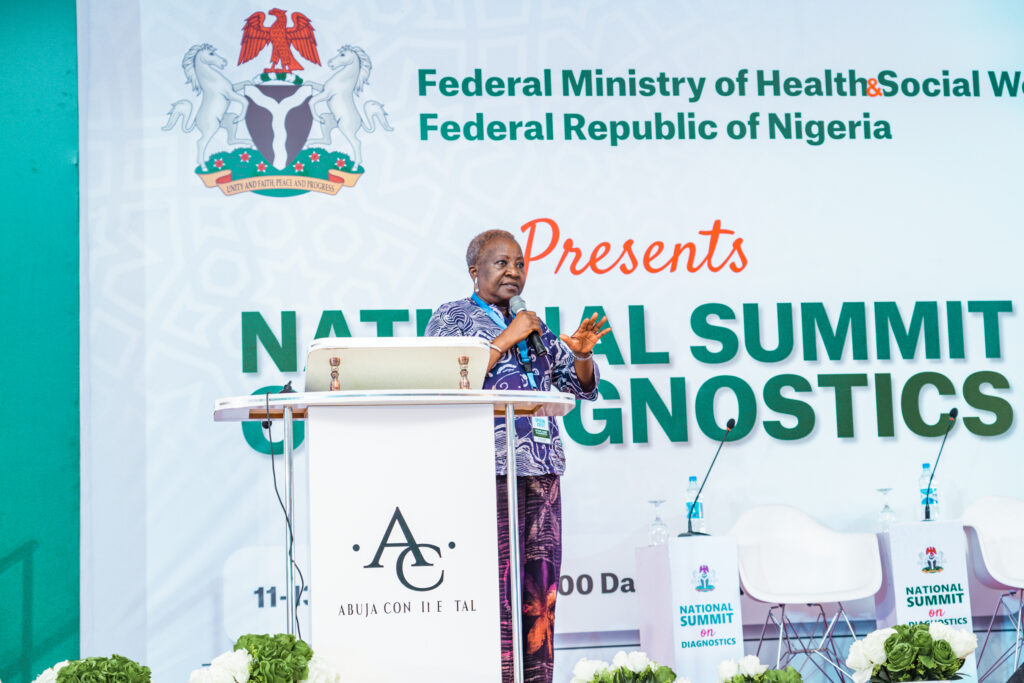
Bid Advert – Supply of Cereal Based Foods under GF N-THRIP grant
| The Institute of Human Virology, Nigeria is seeking bidders to bid for the Supply of Cereal Based Foods under GF N-THRIP grant. | |
| Opening Date/ Time: | 25th April 2025 @8:00am |
| Closing Date/ Time: | 15th May 2025 @10:00am |
| For more on this bid, kindly download the complete bid document, | Click here to download the bidding document |
Project Improves Nigeria’s Still-birth Data Access, Use
The “Improving Nigeria’s Capacity to Use Data of Registered Stillbirths for Decision Making (SPEED Project)” has pioneered the country’s first real-time stillbirth reporting, along with quarterly still-birth national data reporting to support budgeting and work planning.
SPEED Project Principal Investigator, Mrs Oghome Emembo revealed these achievements at the project’s dissemination and close-out meeting which held at the IHVN Campus in Abuja.
SPEED Project was implemented by the Institute of Human Virology Nigeria (IHVN)-International Research Center of Excellence (IRCE) from September 2023 – March 2025.
According to Mrs. Emembo, during the 18-month project implementation period, the project analysed still-births data from 2014 to 2023 from the Federal Ministry of Health’s DHIS platform and spearheaded actions to use data for process change.
“Data revealed that one in 40 pregnancies in Nigeria ends in a still-birth. Still-birth rate is 24 per 1000 live births and this is currently twice the expected target of the Every Newborn Action Plan (ENAP) Global Target of 12 per 1000 live births by 2030.
The project achieved real-time reporting of still-births through publishing of still-births dashboard on the Federal Ministry of Health and Social Welfare’s website. Our activities also stimulated an evidence-based programmatic response from the Federal Ministry of Health and Social Welfare through the expansion of the “Helping Babies Breathe” program to Zamfara state in Northern Nigeria. This is a welcome development as Zamfara state has the highest still birth rate of 53 per 1000 live births,” she said.
She added that SPEED project also facilitated a review of the National Health Management Information System (NHMIS) still birth data collection tool to improve collection and reporting of stillbirth data in Nigeria.
Mrs. Emembo said still birth is a “disheartening tragedy and a silent crisis” in the country and called for sustained actions to prevent it.
At the meeting IRCE Coordinator, Dr. Evaesi Okpokoro thanked stakeholders from the government, media, civil society, medical professionals and advocacy groups for making SPEED project a success. He called for continued advocacy at the state level to reduce still-birth rates.
For sustainability of the project’s impact, the project constituted two groups, namely the “Media Against Stillbirths” and the “Still-Birth Data Use Advocacy” groups.
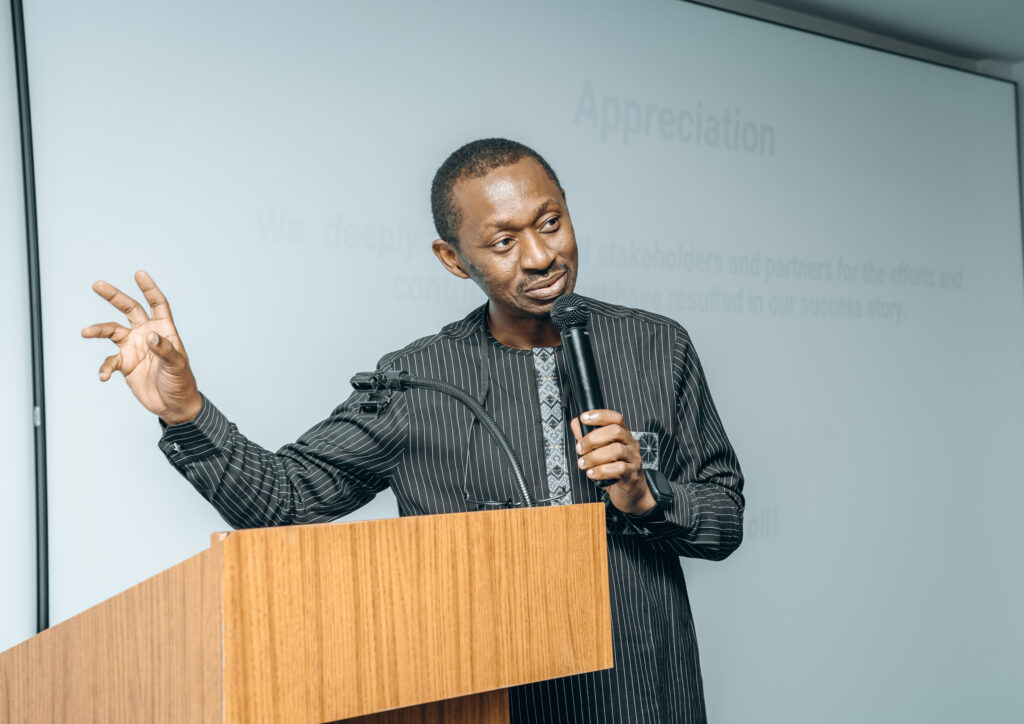
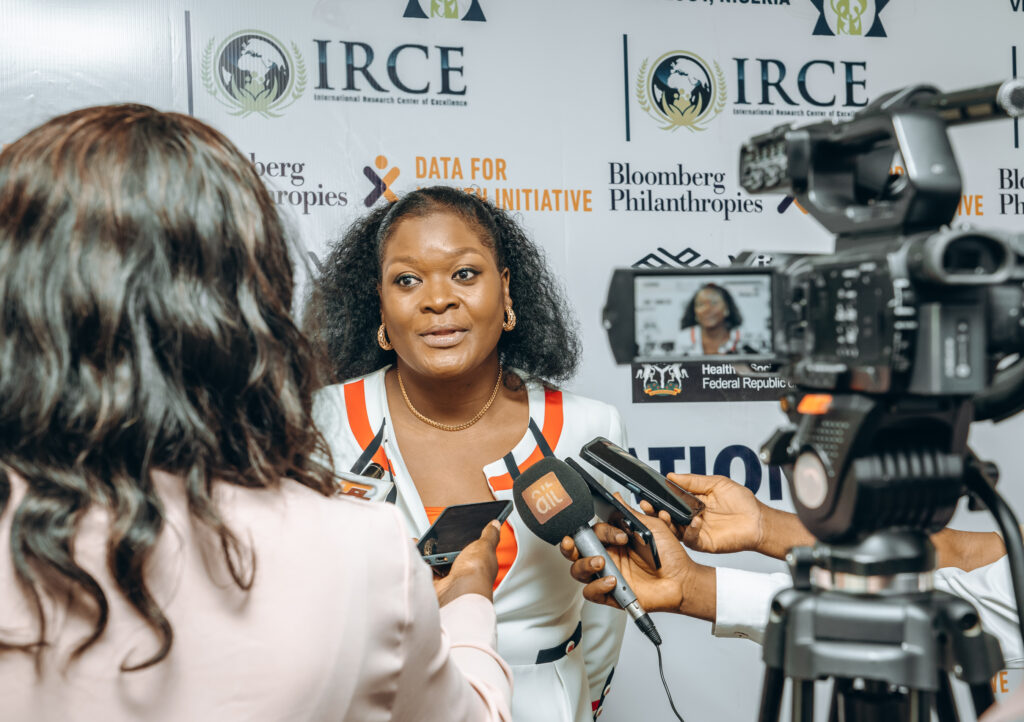
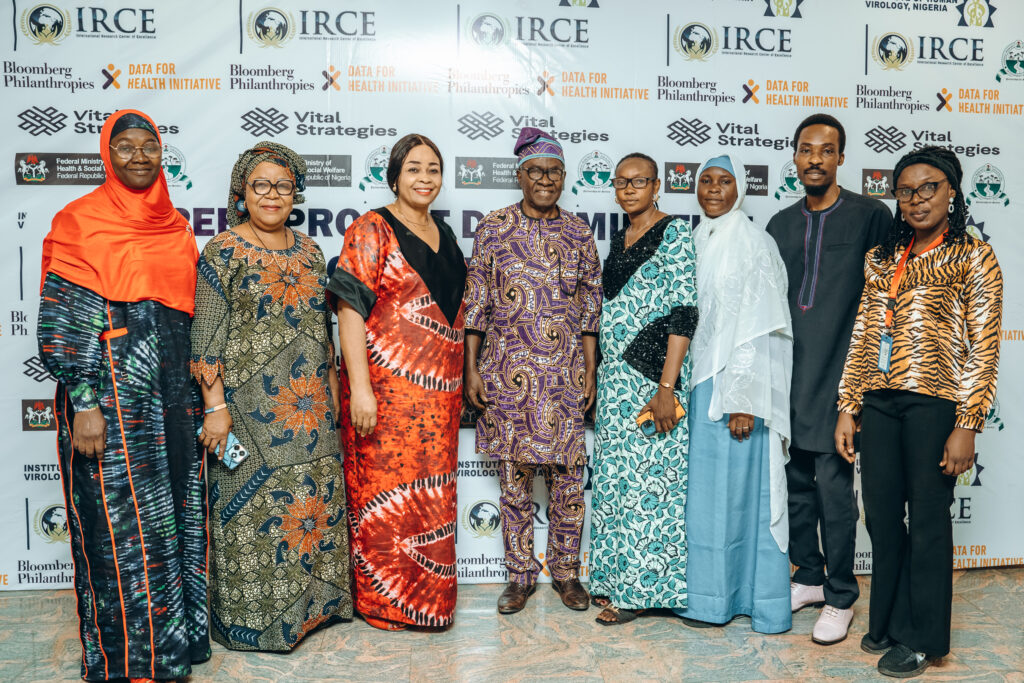
Bid Advert – Supply and Installation of ECHO Equipment under GF N-THRIP Grant
| The Institute of Human Virology, Nigeria is seeking bidders to bid for the Supply and Installation of ECHO Equipment under GF N-THRIP Grant | |
| Opening Date/ Time: | 23rd April 2025 @8:00am |
| Closing Date/ Time: | 13th May 2025 @10:00am |
| For more on this bid, kindly download the complete bid document, | Click here to download the bidding document |

